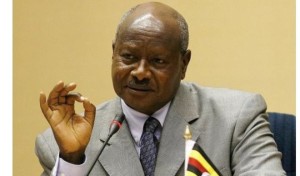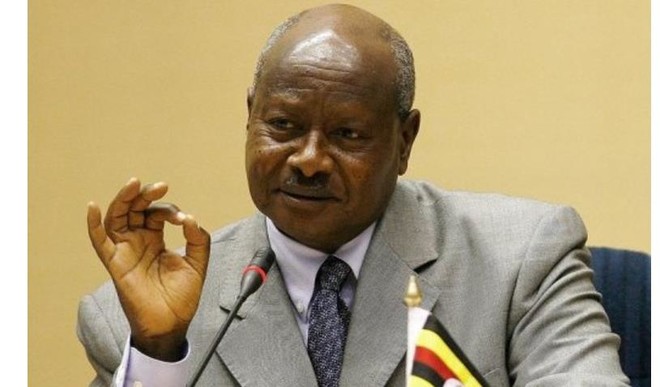
President Yoweri Museveni has won Uganda’s presidential election, the electoral commission said on Saturday, cementing his 30-year grip on power in the East African nation.
“The commission declares Yoweri Kaguta Museveni elected President of the Republic of Uganda,” commission chairman Badru Kiggundu said. Museveni won 60.8 percent of the vote, while his main challenger Kizza Besigye won 35.4 percent.
European Union and Commonwealth observers have criticised the poll and Besigye’s camp had disputed preliminary results.
Earlier, Reuters News agency had reported that Museveni, one of Africa’s longest- serving leaders, looked set to extend his 30-year rule after taking a strong lead in an election disputed by rivals, electoral commission data showed on Saturday.
With about half of all votes counted, Museveni had 60 percent of the vote ahead of his nearest challenger, Kizza Besigye, who had secured 35 percent. Besigye was briefly arrested on Friday as he tried to dispute the results.
Museveni, 71, has presided over strong economic growth, but faces mounting accusations at home and abroad of cracking down on dissent and failing to tackle rampant corruption in the nation of 37 million people.
Besigye’s arrest, his third of the week, contributed to chaos in parts of the capital Kampala on Friday. Police in riot gear had set off stun grenades and fired teargas at Besigye supporters, who responded by hurling rocks and erecting street barricades. The streets were calm on Saturday morning.
U.S. Secretary of State John Kerry called Museveni on Friday to voice concern over Besigye’s detention, harassment of opposition figures and the shutdown of social media such as Facebook and Twitter.
“(Kerry) urged President Museveni to rein in the police and security forces, noting that such action calls into question Uganda’s commitment to a transparent and credible election process free from intimidation,” the U.S. State Department said in a statement late on Friday.
Besigye was arrested as he tried to hold a press conference at the headquarters of his Forum for Democratic Change (FDC) party to release their own poll results. One senior FDC official said there were “glaring discrepancies” with official figures.
Another Museveni rival, former Prime Minister Amama Mbabazi, was put under house arrest, according to his spokesperson.
Museveni’s NRM party said it was confident the veteran leader would win enough votes to avoid a run-off vote.
“It appears as if our message that Uganda should maintain its path of steady progress for all, and not risk an untried and untested opposition, has resonated with the majority of Ugandan voters,” said Mike Sebalu, the NRM campaign spokesman.
Museveni brought calm and stability to Uganda after decades of chaos at the hands of leaders Idi Amin and Milton Obote, but many opposition voters accuse the former guerrilla fighter of becoming increasingly autocratic and wanting to rule for life.
The opposition had tried to tap into mounting anger among young voters, especially in urban areas, where unemployment is high and many are frustrated by the poor state of schools and hospitals.
“We are disappointed, the election has been rigged,” said 23-year-old Brenda in Kampala, who refused to give her second name due to fears for her security. “I have never seen another president and it seems it will be like that until he dies.”







